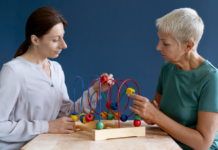Caring for a senior loved one is rewarding yet challenging. But what happens when your loved one starts to slow down, behave differently, or isolate themselves? Home care services have proved to be beneficial.
Here are five signs your loved one needs home care services:
1. Increased Forgetfulness
Memory loss is increasingly common in older adults. Waiting for a medical diagnosis before addressing the issue can cause severe harm in the long run. Increased forgetfulness is one of the earliest signs your loved one needs a supporting hand.
Ask yourself: Is your loved one skipping their medication? Missing their appointments? Or having difficulty remembering basic information, such as the name of the month?
In addition to forgetfulness, your loved one might also start to wander. They might get lost while going on their usual morning walk or forget how to get to familiar places. Caregiver services will support your loved one while ensuring independence.
2. Behavioral Changes
How we react to situations changes throughout our lives. For older adults, such changes can have a negative effect on their mental well-being.
Your loved one might exhibit:
- Aggression
- Increased paranoia
- Increased feelings of anxiety or depression
They might also start calling family members repetitively and show anger if they don’t respond. Moreover, some older adults become increasingly confused and overwhelmed without apparent reason.
If you’ve noticed such behavioral changes, it is time to discuss the possibility of home care services with your loved one.
3. Mobility Issues
If your senior loved one is having trouble walking or getting up, they might need assistance. They might also experience frequent falls and increased joint pain.
While providing mobility aids and making changes to the house is beneficial, your loved one would still be at risk. In-home care services will provide around-the-clock assistance. They will provide mobility assistance and help your loved one get from one place to another.
With proper management, your loved one can stay independent for a longer period.
4. Unkempt Home
Research shows that having an orderly home can offer several mental benefits, such as improved mood and better mental clarity. However, with aging, the ability and strength to keep things in order start to decline. Signs of an unkempt home might include:
- Dirty dishes
- Expired products and beverages
- Potential hazards, such as uneven carpets or broken furniture
- Mail stacking up
- Empty fridge
If your loved one’s home is starting to look disorderly, there are ways to help them. Home care providers can help with meal preparation, clean the kitchen, stock up the fridge, and even sort out the mail. This can significantly improve your loved one’s mental well-being.
5. Social Isolation
One of the biggest challenges of aging and losing mobility is feeling like an inconvenience. Your loved one might start withdrawing from conversations or missing family events. Remember that social isolation can have a negative impact on cognitive skills and might hinder their recovery process.
Home care providers are trained to provide emotional support. They can have conversations, do activities, and even attend social events with your loved one.













